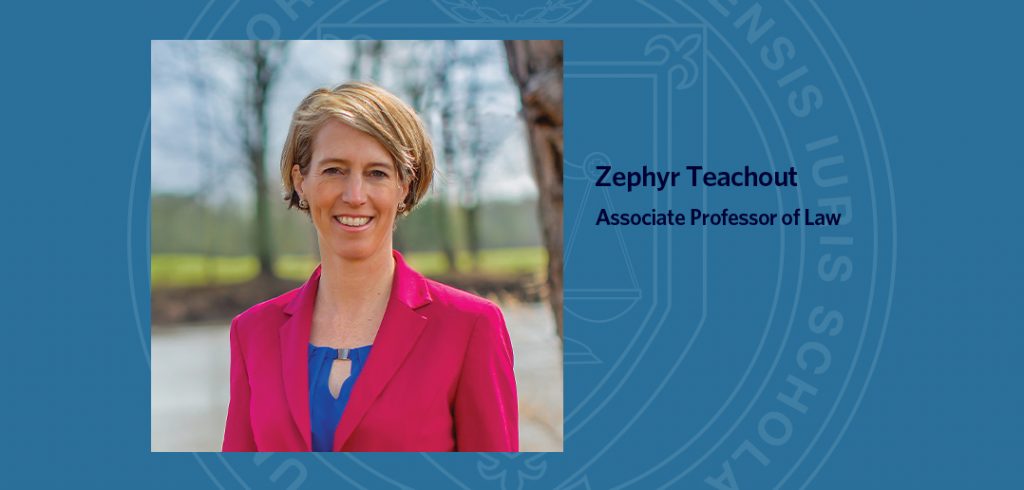Should the government nationalize giant companies or break them up in order to reduce corporate power? In a The Nation article co-authored with Matt Bruenig, founder of the think tank People’s Policy Project, Fordham Law Professor Zephyr Teachout says that freedom requires decentralized power—but ultimately disagrees with the premise of the debate, arguing that one needs both.
Teachout’s most recent book, Break ‘Em Up: Recovering Our Freedom from Big Ag, Big Tech, and Big Money (All Points Books 2020), makes a case for reimagining the relationship between democracy and antimonopoly law.
As we finally rethink neoliberal economics, there are progressive advocates who persist in re-creating its core error of separating questions of economic structure from questions of freedom. They argue that we should organize society around nationalized industries, in which shoes are manufactured by the government, carrots are grown by the government, and meat-packers, social media platforms, and office supply companies are run by the government.
Even putting aside the impact this might have on quality, supply, and innovation, universal nationalization is a terrible idea. I say this as someone who thinks we should expand the Department of Veterans Affairs’ model for healthcare, believes the Department of Defense should build more and contract less, and firmly supports public education over charters and private schools. While the government should run some sectors of the economy, it is critical that significant parts be left to the rest of us.
The goal of an economy is human flourishing, which requires the freedom to speak, to associate, to play, love, and worship. But real freedom also requires basic healthcare, livable wages, and the absence of domination. The wisdom of the anti-monopoly movement is that you can’t have the first two without the third.
…
For human flourishing, we need local power. For more than 140 years, the co-op model has been at the heart of the progressive vision for a just economy, and for good reason. But this is a vision of private industry, not of nationalization. We need an economy with worker-owned and producer-owned cooperatives. And we also need medium-size companies with unionized workforces competing for employees.
One of the grotesque errors of the 20th century was the belief that you could separate politics and economics, that power built in one arena would sit politely and not intrude into the other. The left must avoid this mistake and recognize that the anti-monopoly movement is a key part of human freedom.
Read “Should the Government Break Up Big Corporations or Buy Them?” in The Nation, which also appears in the October 2024 issue.

